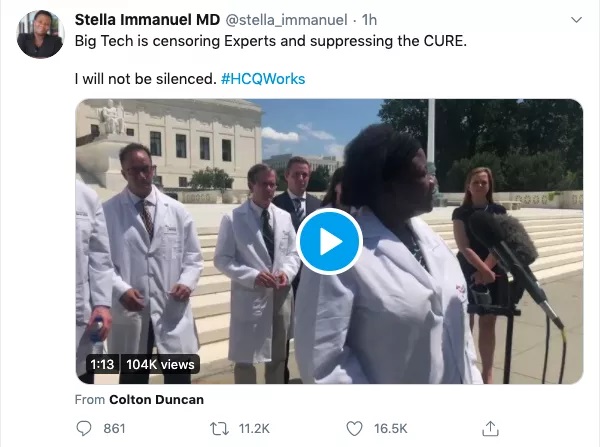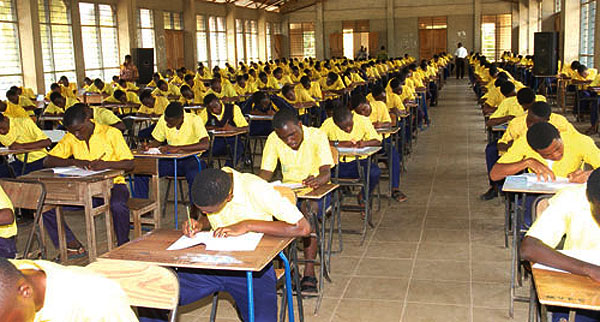Less than 300,000 tests have been carried out in the country. This was restated by the Minister of Health, Dr Osagie Ehanire as being a landmark in the overarching goal of testing 1 million Nigerians.
Over the last 7 days, the number of people tested for the COVID-19 across the country reduced significantly compared to the previous week. 20,855 people were tested so far while 45,728 were tested the previous week.
This is a more than 50% drop in the test volume recorded across testing centres in Nigeria. Considering that a very minute percentage of the population has been tested so far, a drop in the country’s testing capacity is not welcome news.
Of the number that was tested, 3,460 were confirmed to have been infected with the coronavirus. For the previous week, only 3,542 tested positive for the virus. This shows that a higher rate of infection was detected. Approximately the same volume of cases was confirmed even though the testing volume reduced by more than half.
This week, the list of notable people who have been infected with the COVID-19 increased. On Wednesday, July 22, 2020, Ekiti state governor, Kayode Fayemi announced that he tested positive to Coronavirus.
Movement still restricted as FG extends phase 2 of lockdown
Restriction of movement and general activities in the country was supposed to ease a little bit at the end of July. However, the federal government has announced that the current stage of restrictions will be in place for one more week.
This means that the 10 pm to 4 am curfew will remain in place, and interstate movement will also be permitted outside of curfew hours. Drivers in the commercial transport sector are only allowed to take 60% of their normal passenger capacities when going on trips.
According to the Secretary to the Government of the Federation, Boss Mustapha, who made the announcement during the Presidential Task Force briefing on Monday, this is because many people still have not complied with the guidelines to curb the spread of the coronavirus in the country.
“We have regrettably come to the inevitable conclusion that the majority of Nigerians, irrespective of status, creed, and level of education, continue to live in denial of the virulent nature of the virus and consistently breach the guidelines and non-pharmaceutical measures put in place,” he said.
Controversy as US-based African doctor claims Hydroxychloroquine cures COVID-19
Doctor Stella Immanuel’s video claiming that she cured COVID-19 patients with a combination of Hydroxychloroquine, Zinc and Zithromax has continued to raise eyebrows, both among social media companies and the populace.
The video tweet was retweeted by people including US president, Donald Trump, and his eldest son. Read all about it here.
An association of medical doctors in Nigeria has responded to the claims made by the US-based doctor, stating that they are not scientifically proven and should be taken with a grain of salt.
According to the association, “We have watched with dismay the viral video of Dr Immanuel, a doctor in the US. The video has been shared all over the country and led to many people justifiably asking the question: ‘What do you think, doctor?”


The efficacy of hydroxychloroquine is still a sketchy subject. The WHO’s standpoint on it is that the drug does not produce any known anti-viral effect in treatment of patients.
However, Senegal, where the drug is routinely used for the treatment of the coronavirus patients, has one of the lowest COVID-19 fatality rates in the world at 0.64 per cent compared to 3.4 per cent in the US.
In Nigeria, however, studies are still being carried out to determine the efficacy and safety of the drug. This result is what will guide clinicians on the use or dismissal of the drug.
Secondary school students to resume exit classes on August 4
After the federal government announced that schools would not be reopening, it has reconsidered and reached a new decision that students in the Senior Secondary school 3 should resume exit classes. The classes are to resume on August 4.
Students belonging to this class will take the exit classes for two weeks in preparation for the West African Examination Council (WAEC) exams which will start on August 17.


Recall that the Minister for Education, Mr Adamu Adamu, had earlier advised WAEC to postpone the examinations, saying that it was better for students to lose an academic year than to risk being infected with the COVID-19.
Parents and private school owners had disagreed with the minister’s position regarding the exams, maintaining that their wards needed the examinations to further their academic pursuits.
Alleged mismanagement of COVID-19 funds
A number of donations, both in cash and in-kind have been received by the federal government to aid in the fight against COVID-19. Some of the donations include GIGM’s provision of buses to the NCDC, Jack Ma’s donation of test kits, face masks, protective suits, as well as India’s recent donation of medical supplies.
In terms of monetary donations, some of the biggest donations that have come from the country are from the CBN and Alhaji Aliko Dangote, both of whom contributed N2 billion each.
Notable companies and prominent billionaires also donated N1 billion each, including Tony Elumelu, Modupe and Folorunsho Alakija, Segun Agbaje, Abdulsamad Rabiu, Herbert Wigwe, Oba Otedeko, Femi Otedola, Mike Adenuga, Jim Ovia, Raj Gupta, John Coumantatous, MTN Nigeria, and the Nigerian Deposit Insurance Corporation, NDIC. There are other donations not mentioned here.
However, analysis of the Open Treasury Portal which was launched by the FG so that Nigerians can monitor government spending has shown areas where some of the funds for the COVID-19 have been mismanaged by some of the agencies including the FRSC, and the NCDC.
One of the red flags was tied to the FRSC which reportedly spent N5,600 on one unit of hand sanitiser (500ml) for a procurement deal worth N5.6 million. According to some pharmacy owners, at the times when there was the highest demand for sanitisers, the price was not more than N3,000.
This donation of funds and the subsequent mismanagement of it, therefore, does not make it surprising that the number of testing being carried out in the country has not improved despite the addition of new testing centres. The testing capacity alternates between high and low week after week.
According to the health minister, 60 PCR Public Health laboratories are now active in the country, which together should be in a position to address testing capacity challenges and ramp up utilization if only the logistics can be improved.






